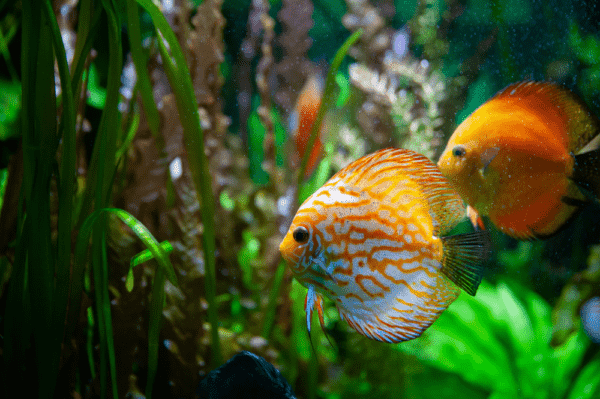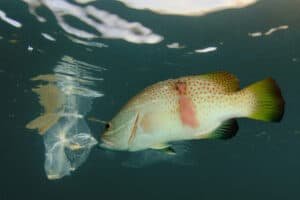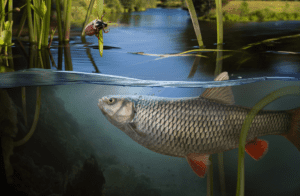What happens if you put saltwater fish in freshwater? Putting saltwater fish in freshwater or the aquarium is the most common question for fish keepers. It is common for a fish keeper to convert the saltwater tank into a freshwater tank. So, is it possible to switch the fish from salt to freshwater?
There is no simple answer to this question because it entirely depends upon the ability of fish to adapt to varying levels of water salinity. This determines if your fish can handle the migration from saltwater to freshwater.
What Happens if you Put Saltwater Fish in Freshwater?
If you place saltwater fish in freshwater, it is challenging to adjust to that environment. It depends upon how fish have developed the physiological mechanism that can help them adapt to the environment they would live in.
When they are placed in freshwater, the water is constantly being drawn out of the fish body, and saltwater is hypertonic to saltwater fish.
To survive in the freshwater, they have to stay and maintain an osmotic balance, so they must drink seawater to compensate for water loss. Salt is also released after migrating your fish from Saltwater to excess freshwater.
This extra salt can pass through their bloodstream and then pass through their kidney and eliminate urine.
If your fish try to adjust according to the osmoregulation process, they will die if left in the freshwater tank. It is not possible to convert saltwater fish to freshwater fish.
Why do Fish Live in Either Saltwater or Freshwater?

Fish live in either saltwater or freshwater, depending upon the environment where their fish species have lived from the start. No doubt evolution allowed fish to develop the physiological traits which can make them suited according to freshwater or saltwater but not the both.
If you want to understand why Saltwater fish are not compatible with living in freshwater, you have to understand the difference. These two fishes are different, and the main difference is the concentration of salt in the water.
The main difference occurs in how the fishes tackle the salt concentration in both environments.
1. Freshwater Fish
Freshwater fish spend their whole life in rivers lakes where salinity is less than 1.05%. They eat their food from fresh water and live in an environment with a new water source.
Freshwater fish have physiological mechanisms that help them live in water with low salinity. To counteract the low salt level, fish have to concentrate the salt deposit in their bodies.
Freshwater fish will remove the dilute urine throughout the day. They do this to remove the extra amount of water and retain the ions through their gills.
2. Saltwater Fish
Saltwater fish are also called marine fish, and they spend their lives in oceans. They have physiological mechanisms that help them excrete salt when they drink marine water.
They have enzyme-producing cells present in their gills, and this enzyme is known as the ad sodium-potassium pump.
These enzymes will pump the sodium out with the excess salt through the gills. Saltwater fish have kidneys that help in filtering out the salinity regulating ions.
How Long a Saltwater Fish Stay in Freshwater?
Fish keepers have experience with both saltwater and freshwater fish. They have to maintain a reef tank for both types of fish. Aquarists use the shock method where saltwater fish develop a condition known as white spot disease.
It is a parasite infection that can prove dangerous to saltwater fish. Freshwater dip help to get rid of this parasite by using the osmosis technique.
Saltwater fish have a lower salinity level, and the water is constantly drawn from their cells, so they have to drink water to keep themselves hydrated.
Saltwater fish also pass this water across the digestive tract and kidneys and then excrete water through the gill.
Saltwater fish can’t survive in freshwater due to the high salt concentration. If you put a saltwater fish in the freshwater, the saltwater cell would swell, diluting the salt concentration.
What is Osmosis and how does it work?
Osmosis is the movement of water molecules from higher concentration to lower concentration. It allows water to move in and out of the cell of an organism.
Fishes have a semi-permeable membrane, and with the help of osmosis, the salt concentration can move inside and outside of their body. The process of osmosis is harmful to human beings.
Wrapping Up:
Saltwater and freshwater fishes both have very different environments, and they can’t survive in each other environment. If you are a fish keeper, you probably have an idea about that, but a person who doesn’t have an idea about the fish may end up making this mistake.
Read Also: Want to Bring Fish Pet at home? A Quick Guide.





